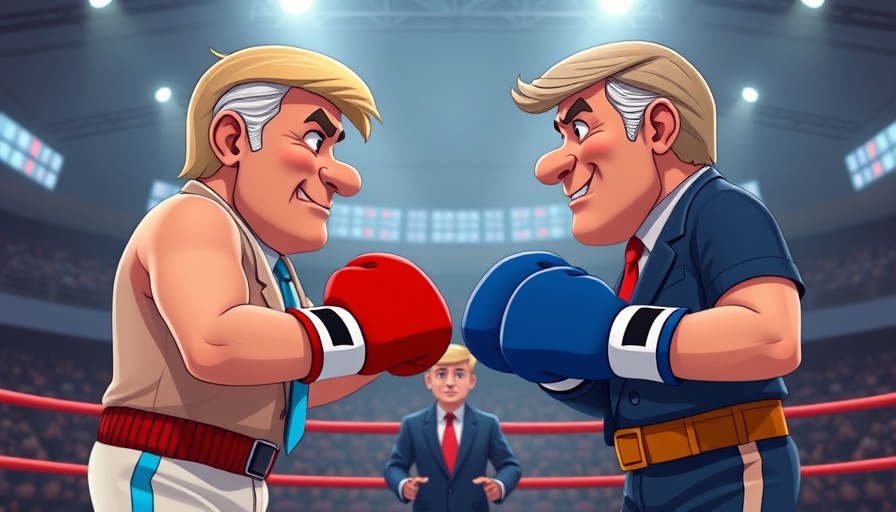
A Party Divided: The Present Struggle of Democrats
The ongoing turmoil within the Democratic Party raises serious questions about its future direction. Members such as Chuck Schumer and Nancy Pelosi are subtly attacking each other's policies while the entire party struggles to maintain a unified front. Chuck Schumer recently defended his decision amid aggressive backlash to a potential government shutdown, making it clear that some Republican senators intend to keep the government shut down for an extended period, potentially up to a year. This certainly adds pressure on the Democrats, who are already embroiled in internal conflicts.
In 'Democrats Have Started Attacking EACH OTHER!?' the discussion dives into the disarray within the party, prompting an analysis of its implications on American politics.
Grassroots Discontent: Where Is the Support?
As tensions rise, Bernie Sanders has observed that grassroots support for the Democratic Party is almost nonexistent. This is a vital observation as a lack of community support often signals deeper issues within a political party. Sanders argues that the party has become increasingly disconnected from working-class Americans and is instead influenced heavily by wealthy donors and consultants who don’t understand the struggles of everyday people.
The Clinton Factor: A Search for Relevance
Amid these tensions, former Secretary of State Hillary Clinton's recent comments in Germany have once again thrust her into the spotlight. Clinton’s criticism of the current U.S. government for its alliances with autocratic regimes is stirring debates about her political future. Despite being out of the limelight for a while, her speeches hint that she still sees herself as a pivotal figure in American politics.
Judicial Chaos: The Courts and Executive Power
As Democrats argue amongst themselves, a noticeable trend is emerging with the judiciary impacting significant governmental policies. Recent court rulings regarding the Trump administration's directives, particularly about military service for transgender individuals, showcase the tension between the judicial system and executive authority. Steven Miller, a policy adviser, has voiced frustrations over district judges assuming what many would view as unwarranted power to shape national policies. This situation raises concerns over the stability of democratic processes and the rule of law.
What Lies Ahead for the Democratic Party?
The Democratic Party is at a crossroads. The infighting may signal a deeper crisis ahead as they continue to distance themselves from their foundational supporters in the working-class communities. The increasing precedence of billionaires and elite consultants could signal an existential threat to their traditional voter base. In such a politically charged environment, how will the Democrats focus on economic issues that resonate with average Americans?
As we observe these dynamics, one can't help but wonder if the factionalism within the party paves the way for a more unified conservative response led by figures like Donald Trump. If the Democrats fail to coalesce around the common good and instead continue their internal conflicts, it could open the door wide for the Republican Party to gain a foothold with new and renewed vigor. The importance of unity and shared purpose cannot be overstated, especially as the political landscape evolves at a rapid pace.
Understanding how this leadership dilemma affects American democracy as a whole is crucial. For those involved or interested in politics, staying informed about these critical players and the real-life implications of their disputes is key. Perhaps one of the most pressing questions concerns who emerges as the authoritative voice for the working-class liberals, as echoes of discontent rise across the Democratic Party.
In this ever-evolving political space, clarity in governance, accountability in leadership, and unwavering support for grassroots movements will shape the Democratic Party's trajectory. As citizens dig deeper into these issues, it becomes necessary to consider how their allegiance might adjust in response to these unfolding events.
 Add Row
Add Row  Add
Add 




 Add Row
Add Row  Add
Add 

Write A Comment